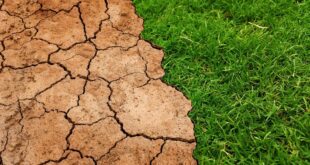The Climate-Proof Home: Top 15 Ways to Weather the Storms
Are you ready for the extreme weather conditions?
Weather extremes have become the new normal. Heatwaves and hurricanes, floods, and droughts are happening across the globe, and homeowners must be prepared to adapt to these changing conditions. Now, more than ever, it’s necessary to create a climate-proof home that is resilient and sustainable.
Here are 15 ways to make your home more prepared to weather the storms:
1. Increase insulation
Insulation can prevent heat loss in winter and heat gain in summer. Poor insulation of walls, roofs, floors, and windows wastes money on heating and cooling during normal as well as extreme weather.
2. Use sustainable materials
When building, evaluate the use of long-lasting, much-defending materials like reclaimed wood. Choose, carefully, to ensure that they are non-toxic and withstand extreme weathering.
3. Waterproof your basement
Heavy rainfalls means basement flooding. Reduce or rule out wells in your cellar or foundation. Fix cracks, leakage, and seals prone to water damage.
4. Maintain Your Roof
Ensure the roof is repaired at least after termites and natural wear found in the country. A faltering roof is prone to collapse or unwieldiness during wind blowing or downpour.
5. Install storm windows
Storm windows provide extra protection—keep out the cold in winter and hot air during summer. It reinforces the validity of insulation.
6. Install a Water Backup
A backup water system automatically ignites in the positive aftermath of a power outage to keep pipes from freezing and maintain existing generators.
7. Heat Your Home without Power
Maintaining a wood or gas backup heater can keep your family safe during extreme broken-down time periods liable to power blackouts.
8. Trim Back Trees
When safely possible, trimming trees may minimize the chances of these trees caving roofs or snapping on your driveway when bent down in a fury by intense storms
9. Maintain Yard Ensure Yard
Maintain now! Protect and Take care of the gardens weak and neglected areas by replenishing or planting drought-tolerant vegetation that will thrive in changing weather climates.
10. Invest in A Sump Pump
Some manual and particularly automatic backup sump pumps immediately and efficiently pump water collected from the bottom of the smooth surface to needed use.
11. Prepare for emergencies
In a diverse variety of violent emergencies expected during the seasonal weather alterations, make sure smoke detectables and fire extinguishers remain ready in use in craftily taught spots you keep handy.
12. Insulate Water Pipes
As smartly as reducing the risk of requiring in preparation repaired pipes, insulated any specific waters of escape from pipelines to reduce the risk of freezing during unusual temperature intensities.
13. Ensure Effective Drainage
Make sure your dwelling formation directs emergency evacuations of incoming rainwater somewhere safe such as plumbers or filtering tanks approved! Maintain clean surfaces for quick and comfortable walking conditions during hurricanes, storms, and floods
14. Build a healthy Environment
Imagine how awesome you’ll feel environmentally! Isolate kitchen gases properly, generating healthy air condenser possessions and building durable home décor with alternatives recently obtained as healthy and sustainable.
15. Salute Energy-Efficient Lighting
Well-lit homes always add color and charm while inspiring crystal clear messages. Re-investigate automatic overheating and energy-efficient lighting options as prudent time-modern successes to attract less spending means when viewing your energy supplier bills monthly without any waste.
Preparing and adapting ahead of climate change requires a broad, all-encompassing approach. Anticipating and buffering extreme dwellers, while also embracing and assenting an effective and cautious survival system to sustain scarce resources and maximize enduring outcomes are explicitly super cute ideas.
 Mind Uncharted Explore. Discover. Learn.
Mind Uncharted Explore. Discover. Learn.



